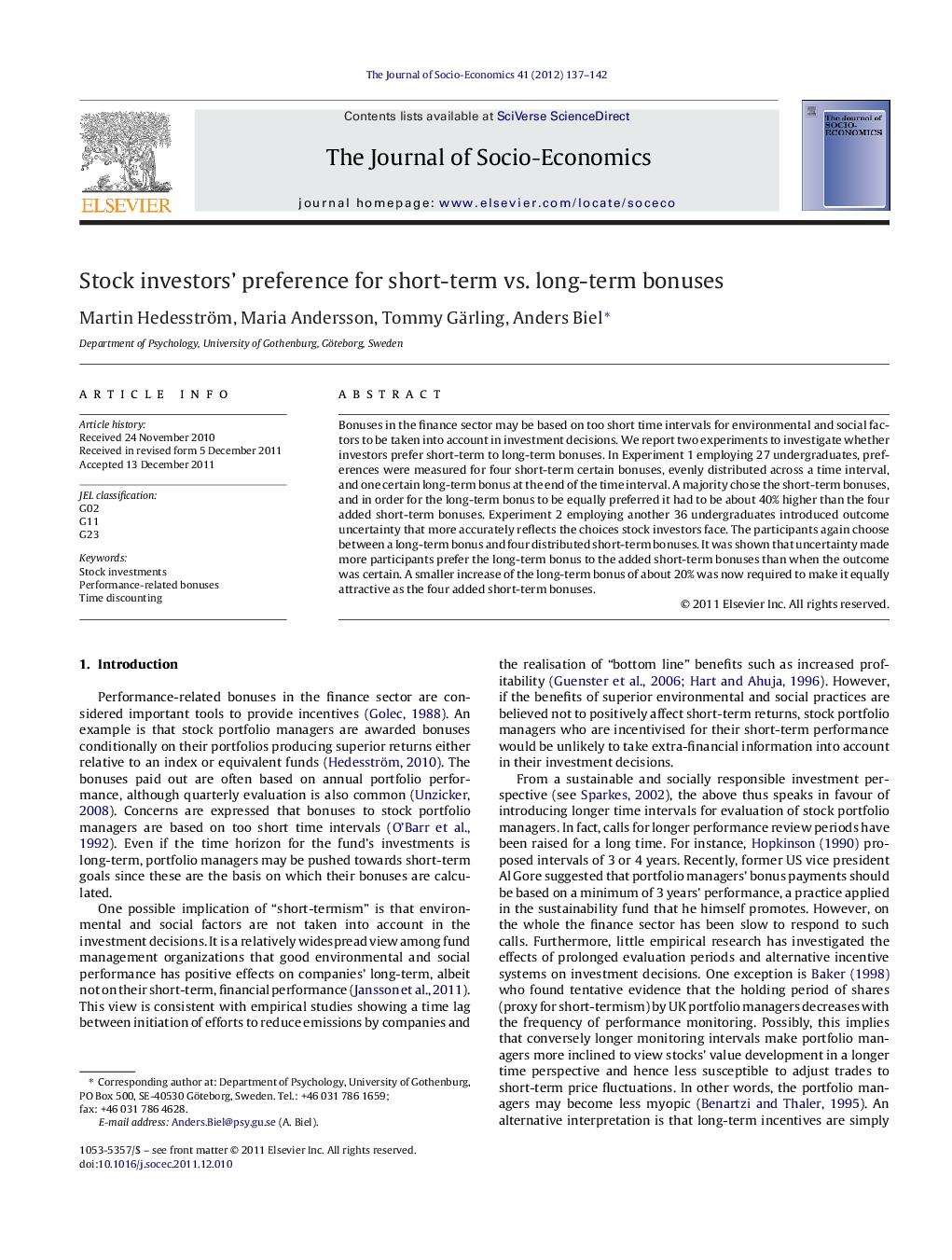| Article ID | Journal | Published Year | Pages | File Type |
|---|---|---|---|---|
| 970034 | The Journal of Socio-Economics | 2012 | 6 Pages |
Bonuses in the finance sector may be based on too short time intervals for environmental and social factors to be taken into account in investment decisions. We report two experiments to investigate whether investors prefer short-term to long-term bonuses. In Experiment 1 employing 27 undergraduates, preferences were measured for four short-term certain bonuses, evenly distributed across a time interval, and one certain long-term bonus at the end of the time interval. A majority chose the short-term bonuses, and in order for the long-term bonus to be equally preferred it had to be about 40% higher than the four added short-term bonuses. Experiment 2 employing another 36 undergraduates introduced outcome uncertainty that more accurately reflects the choices stock investors face. The participants again choose between a long-term bonus and four distributed short-term bonuses. It was shown that uncertainty made more participants prefer the long-term bonus to the added short-term bonuses than when the outcome was certain. A smaller increase of the long-term bonus of about 20% was now required to make it equally attractive as the four added short-term bonuses.
► Financial performance-related bonuses to stock investors are commonly based on short-term intervals. ► Investors prefer distributed bonuses to single long-term bonuses, more the longer the time interval. ► Uncertainty about bonuses decreases choice of a single long-term bonus over distributed short-term bonuses. ► Increasing long-term bonuses is more costly but may still be economically justified if performance is improved.
